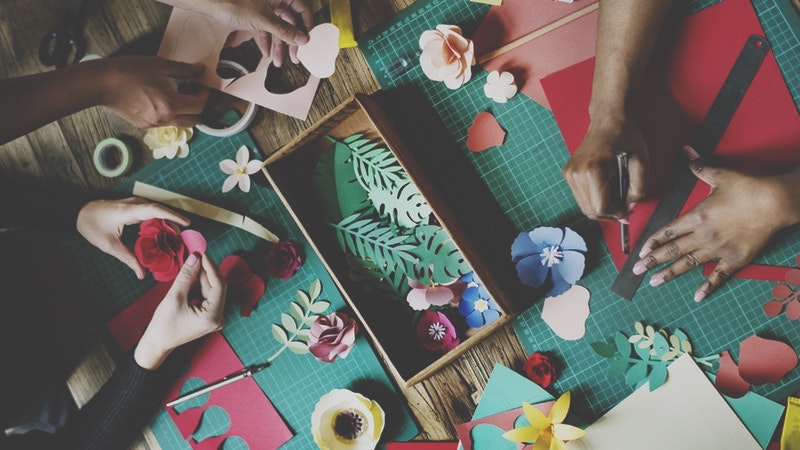How to Keep Your Creativity Alive
Episode #10 of the course How to unleash your creativity by Jurgen Wolff
In the last lesson, we looked at some ways to apply creativity to the personal, as well as the business, parts of your life. In this final lesson, you’ll discover how to feed your creativity, and you’ll also find a quick recap of the steps of the creative process.
Staying Creative
Below are a few ideas of how to keep your creativity alive.
Avoid ruts. If you get stuck doing the same things every day in the same way, your brain doesn’t get much new to work with. It’s great to travel to distant lands, but it’s also possible to stimulate your brain closer to home. A few things you can vary:
• how you travel to work
• what you eat
• whom you hang out with
• which TV shows you watch
Make a point of doing at least one thing differently every week.
Work on a variety of types of projects. If you normally paint landscapes, try sculpting a head. If you usually make presentations with Powerpoint, try involving your audience in an activity. It’s important that the experience is different enough, because requiring different skills will challenge you. If you normally write short stories, writing a script is a nice change, but making a short film is even better.
It doesn’t matter whether your short film or interactive presentation wins awards. The experience is what’s beneficial. Not only will it introduce some variety to your life, it may give you fresh insights and skills to apply to your usual activities.
Take breaks from work and phone. A study at the University of Illinois found that even short breaks can dramatically improve your ability to focus on a task for prolonged periods. Many people swear by the Pomodoro Technique, which advises that you work for 25 minutes, take a five-minute break, then work for another 25 minutes. After every four work sessions, take a 20-minute break. Use a timer to make sure you stick to these time frames.
Also, a study from Brigham Young University reveals that paying constant attention to your phone and other smart screens can be damaging to your psychological health and to your relationships as well. So, get used to taking a few breaks from the devices and let your mind rest.
Get enough sleep. According to the BBC Science: Human Mind and Body site, “Lack of sleep has serious effects on our brain’s ability to function. … Sleep deprivation not only has a major impact on cognitive functioning but also on emotional and physical health.”
How much sleep is enough? There’s no one answer to that, but the BBC quotes Jim Horne from Loughborough University’s Sleep Research Center: “The amount of sleep we require is what we need not to be sleepy in the daytime.”
If you find yourself needing lots of coffee or energy drinks to stay alert during the day, you’re not getting enough sleep. This may have a harmful impact on your ability to be creative.
Have a growth mindset. Be open and willing to keep learning new things. That’s what you’re doing right now, and there are many other courses, books, and experiences that can help you keep learning. For instance, it’s not too late to learn a new language or how to play a musical instrument. Lifelong learning keeps your mind active and adds to your confidence.
Making these five things a part of your life will help keep your creativity flowing.
A Brief Recap
As you’ve discovered in this course, creativity is a skill you can develop and apply to many parts of your life. The key points to remember:
• It’s useful to separate having ideas (the Dreamer’s Room), implementing them (the Realist’s Room), and judging them (the Critic’s Room). You cycle through these until you’re satisfied with your idea or project.
• You can experiment to find what most supports your creativity in terms of when and where you work.
• You can use specific creativity techniques like Forced Association, The Opposite Technique, Teaching Your Problem, Creative Dreaming, and Imaginary Mentors to generate lots of ideas.
• Failure is inevitable, at least temporarily, when you’re trying new things, but you can learn by using the “movie screen” method to identify what went wrong.
• Your creativity can be a source of enjoyment and satisfaction for the rest of your life.
This course has offered you a powerful set of tools, but applying them is up to you. I hope you’ve enjoyed the course and that it helps you achieve the success you want in all the areas of your life.
All the best,
Jurgen Wolff
Recommended book
Making Ideas Happen: Overcoming the Obstacles Between Vision and Reality by Scott Belsky
Share with friends

